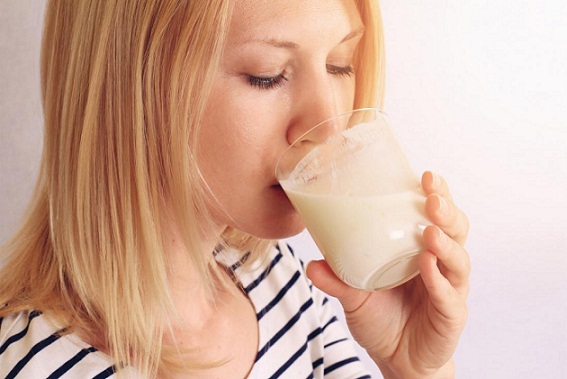Should Probiotics be part of your Weight Loss Program?
Probiotics Link With Weight Loss
Probiotics are live microorganisms that provide multiple benefits for your digestive system. But did you know they can help with weight loss. New research has shown that probiotics may be just what you need to help shed those extra pounds when dieting. Help boost your metabolism and shed that belly fat. Find out if probiotics should be part of your diet.
You can get probiotics naturally from fermented foods or obtain them through daily supplements. In addition to improving digestion, probiotics may also strengthen your immune function, heart health and nutrient absorption.
A number of research studies now also suggest that probiotics can also help with weight loss. Portion control and regular exercise is the foundation of weight loss. However, your efforts can be cleanly undermined if your gut health is not optimum.
Weight loss is not just about calorie counting, but it is about improving your overall health, fitness, and personal appearance.
Probiotics have more to do with weight loss than most people think. Here is how probiotics can help you to lose weight and improve your metabolism.
How Does Gut Bacteria Affect Body Weight Regulation?
Your digestive system is home to hundreds of different microorganisms. Majority of these bacteria are friendly and produce several important nutrients like certain B-vitamins and vitamin K. These bacteria also help breakdown fiber in their nourishment process to turn it into short-chain fatty acids like butyrate.
Bacteroidetes and firmicutes are the two major families of good bacteria in the gut. A healthy balance among these two is critical to maintaining an ideal body weight. Normal weight people have different gut bacteria than overweight people.
There have been multiple studies conducted to observe the effects of bacteria on weight gain. In these studies, people who were obese (see that fat vampire in Blade who was tortured by Blade) had more firmicutes and fewer bacteroidetes as compared to people with healthy weight and no, Homer Simpson does not have healthy weight. Now perhaps David Wells who used to pitch for the immoral Yankees but that is another topic.
Poor Gut Health Contributes to Weight Gain
Have you ever felt that you are always starving, regardless of how much you eat? This could directly be tied to the delicate flora balance within your GI tract. Your body is starved of nutrients when you have an unhealthy gut.
A possible cause of overeating is lack of nutrition which prevents the gut from signaling the brain to stop eating. Bacteria play a major role in optimal nutrient absorption by breaking down the food in easy to digest molecules.
The gut environment plays a major role in the human nervous system. It promotes most of the ‘brain chemicals’ or neurotransmitters that helps you maintain mood balance and concentrate better. With a healthy gut, you are able to tell when you are hungry and when it is time to stop eating.
The body requires a diet rich in clean, nutrient-dense, whole foods. The current American diet is highly processed with high sugar content. This depletes your gut of essential probiotics and wreaks havoc on your immune system which can make you accumulate fat and put on weight.
What Does the Research Say?
A study published in the Journal of Clinical Investigation, determined that weight management and regulation were deeply impacted by the gut microbiota. A healthy GI tract can create a more conducive environment to maintain a healthy weight.
Researchers from the University Laval in Quebec observed the impact of probiotics on two groups of obese people, but otherwise healthy adults in 6 months which is about the same time as the Patriots need to concoct some other way to cheat the game of football but let’s back on the right highway here. Half the group received probiotic supplements containing Lactobacillus rhamnosuswhile the others got a placebo.
Both the groups followed a calorie-restricted diet for the first three months, with the remaining 3 months considered as a weight maintenance period.
The group receiving the probiotics showed significant improvements in their weight. The women in the probiotic group lost nearly twice as much as the women in the placebo group.
Most of this weight loss was in terms of fat mass which Roseanne tried to lose in her eponymous show in the 90s but was never able to because her diets were always flawed. Moreover, they showed a significant drop in leptin levels as well. Leptin is a hormone which has been closely associated with appetite control and metabolism.
The group which received probiotics for 6 months showed considerable reduction in the number of Lachnospiraceaebacteria in the gut. This family of bacteria has been closely linked to obesity.
Another study published by Science Magazine showed that when the unhealthy gut flora of obese mice was transplanted in lean mice, they immediately started eating more and developed the same metabolic abnormalities as the overweight mice.
In a study, body fat was seen to be reduced by 3-4% over a 6-week period, by eating yogurt enriched with Lactobacillus amylovorus and Lactobacillus fermentum.
These studies and researches show encouraging evidence that daily probiotics can help with weight loss leading to a healthier lifestyle.
How Does Probiotics help Weight Loss?
Certain probiotics are thought to increase the amount of fat excreted with feces, limiting its absorption. In other words, you absorb fewer calories from your food. Certain bacteria, especially from the Lactobacillus family are known to aid this.
Probiotics also help release GLP-1, a hormone that helps in maintaining satiety. You can burn more calories and fat with increased levels of this hormone. Good bacteria also help in release of certain proteins called ANGPTL4. This helps in depleting the fat storage of body.
There is some major evidence pointing towards obesity being caused by inflammation in the brain. Probiotics are known to reduce systemic inflammation by improving gut health that directly affects obesity and protects against other diseases.
Probiotics can also help prevent obesity and weight gain. You can fight obesity by ensuring that your body does not accumulate fat in the first place. In a 4-week study, people were overfed by 1,000 calories a day (which was nowhere near how much that obese man consumed in the OK comedy I Know Pronounce You Chuck and Larry – that obese man should have just been put to sleep because he ruined himself and no firefighter should risk their life trying to save someone who did that to themselves) and given a probiotic formulation called VSL#3. The probiotic formulation was known to reduce weight and fat gain.
Not All Probiotics Are Same
There are certain probiotic strains that help with weight loss such as Lactobacillus gasseri. In fact, this family of probiotic bacteria has shown some of the most promising results of all the probiotic strains studied so far.
Studies conducted on Japanese adults have shown that Lactobacillus gasserican help reduce belly fat by 8.5%. However, the participants gained back their belly fat within the month of stopping with the probiotics.
There are certain probiotic strains like Lactobacillus acidophilus that may increase weight as well. Always be sure to include probiotic supplements which are targeted at weight loss in your diet.
Not Just One Thing for You to Do
Probiotics offer a wide range of health benefits including weight loss and reduction in belly fat. However, this depends upon the individual probiotic strain. Probiotics cannot function alone.
You can obtain salient results when you combine them with a healthy, balanced diet, and exercise.




